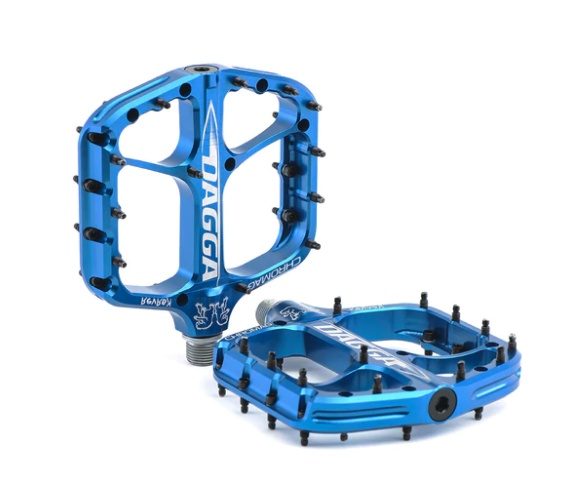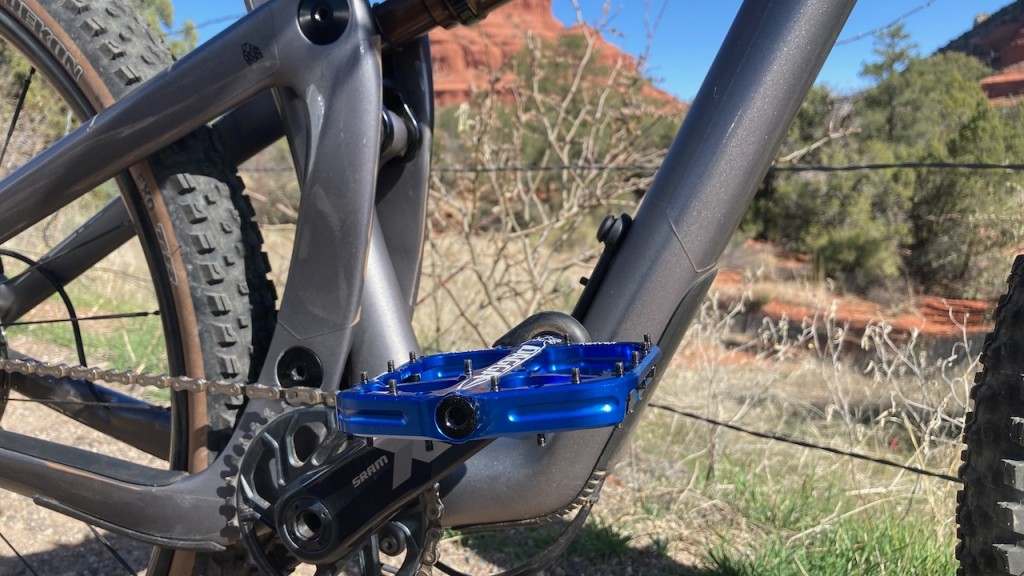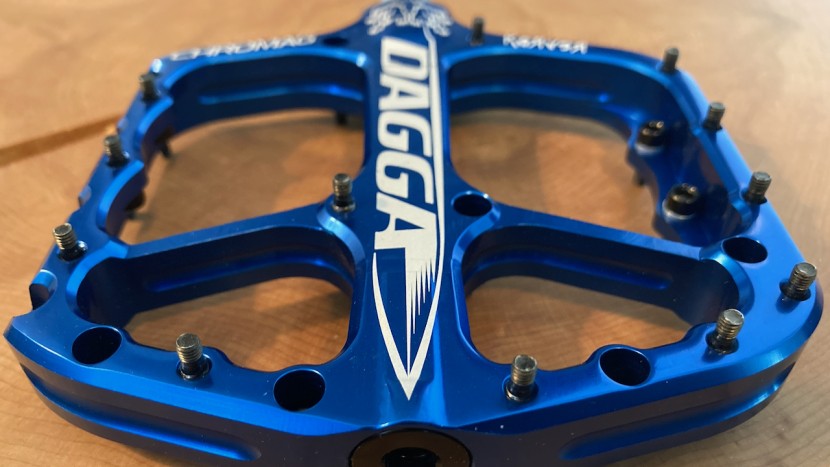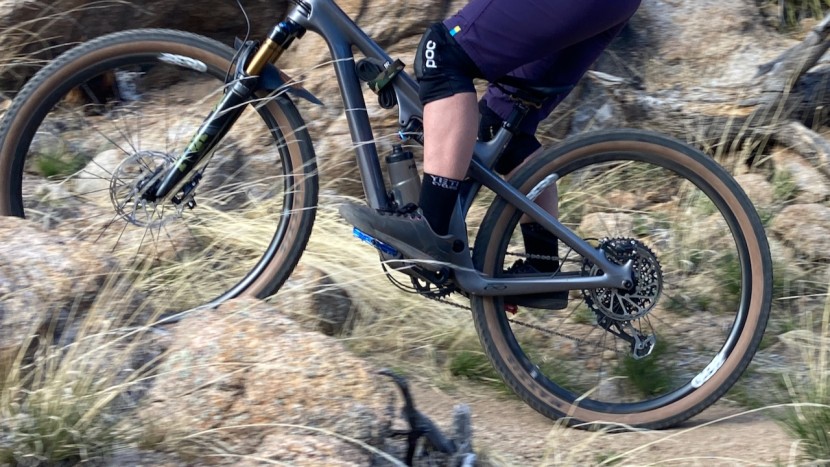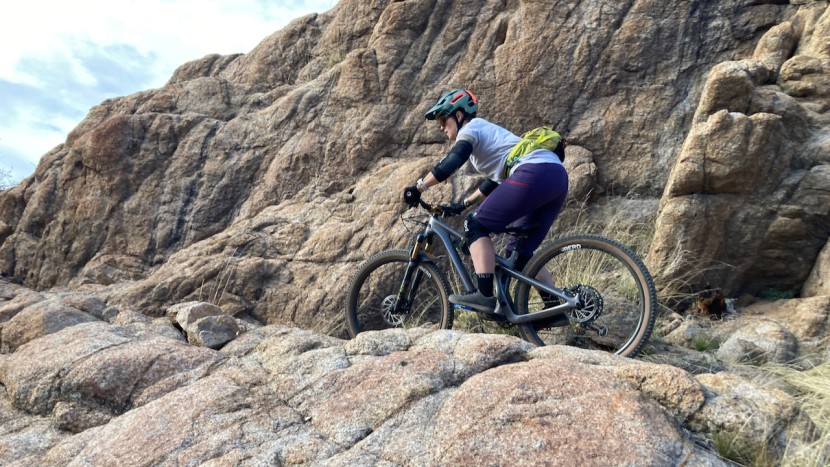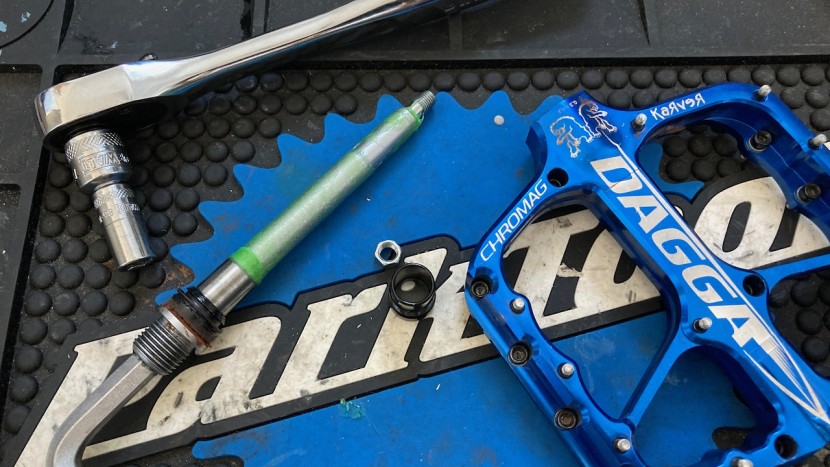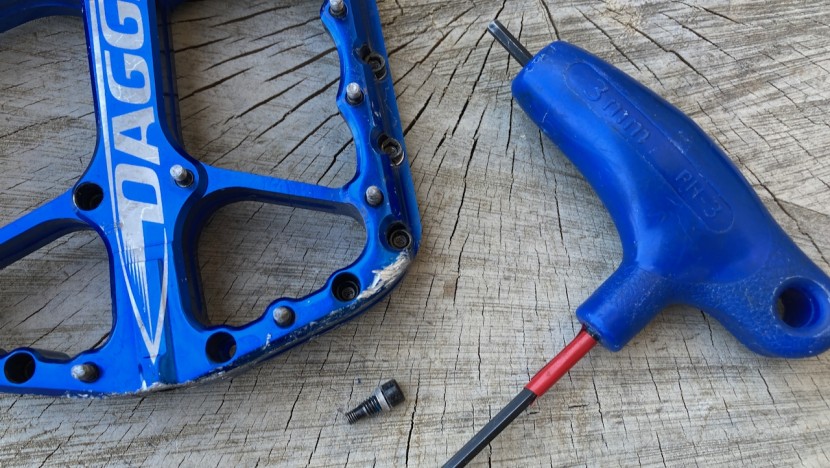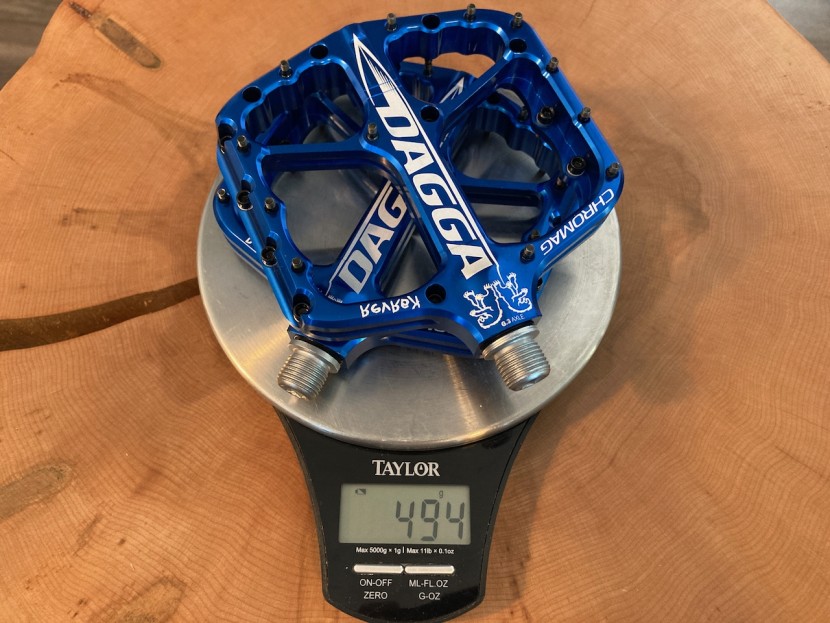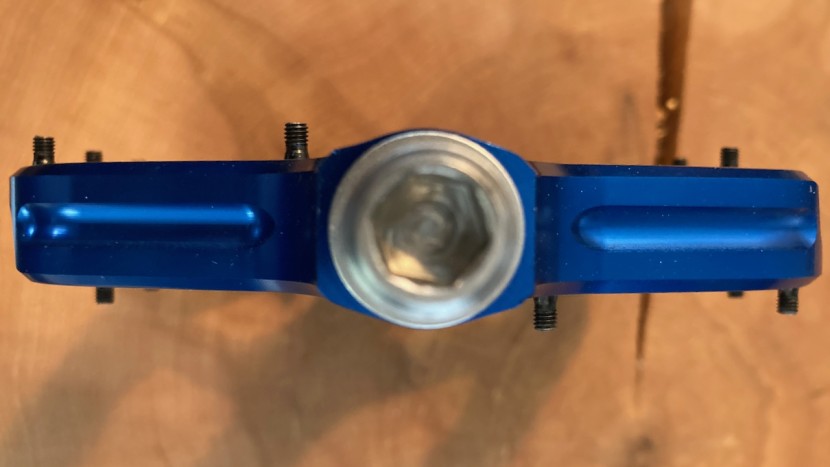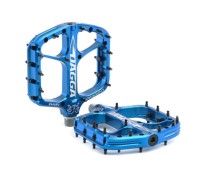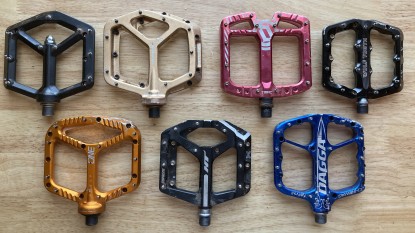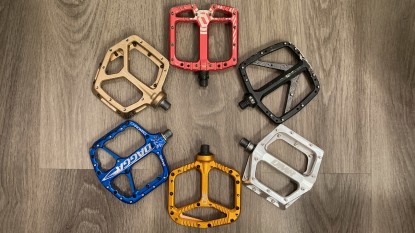Chromag Dagga Review

Our Verdict
Our Analysis and Test Results
If you're looking for a pedal with ultimate traction for the bike park or long chunky descents, the Chromag Dagga should be on your shortlist. These pedals offered excellent grip and impressed us with how stable and confidence-inspiring they were to ride. We especially appreciated them when landing jumps and drops that can sometimes make your feet bounce on the pedals. The Dagga has a large platform measuring 111mm x 116mm, but its shape and profile prevent it from getting hung up on rocks too easily. Our testers with smaller feet could easily find good foot placement with the Dagga, and our testers with larger feet found the platform to support their foot fully. The bearings are internal to the axle, work well with any crank or bootie, and have an ultra-smooth spin. At 494-grams, it is a heavier pedal set, but it is made from quality components and is a great choice for gravity riding.
Grip and Traction
The Chromag Dagga has an outstanding grip even on the most technical trails and jumps. Its alloy platform has a slightly concave shape with 12 “super grip” pins per side, the most of any pedal Chromag makes. The Dagga is also compatible with Chromag's standard pedal pins for those who prefer less aggressive pins.
For technical riding, these are some of our favorite pedals. They inspire confidence and have outstanding traction, whether you're going up or down. We tested the Dagga with various shoes and found it grips shoes whose soles have a few millimeters of space between the lugs or treads best. The “super grip” pins are adjustable and bite into your sole, creating a strong bond between the shoe and pedal. The pins come with one washer installed, making their height around 4mm, and with the right shoe, the Dagga has an almost clipped-in feel. These pins are quite aggressive; you will want to avoid contact with them and your bare legs.
Repositioning your foot is more difficult once it's planted. Still, we find it easier to find a good foot placement, to begin with, thanks to the location of the pins, which line the perimeter of the pedal with one just ahead of the axle.
Platform
The Dagga has the larger platforms in our test, measuring 111mm x 116mm, with a Q factor of 117mm, making it a great choice for riders with larger feet. Our testers who wear an EU 40 shoe can find a good foot position on the platform thanks to the pin placement with one pin on the leading edge of the axle to help solidify the grip.
From the outside edge to the axle, a diagonal brace supports your shoe; this is especially important for riders with smaller feet who otherwise may feel like their foot is compressing into the void between the outer edge and the axle.
The platform on the Dagga measures 15.75mm at the leading and trailing edge on our calipers but bulges by 1.5mm at the axle where the end cap is located. The platform body has chamfered edges, and the outside edge tapers towards the leading and trailing edges helping reduce pedal strikes. However, these pedals are wide and can more easily get hung up on rock pinches at the axle, their widest point.
Mobility
If you like to move your foot around on the pedal, you might want to consider other options. The Dagga has outstanding grip, and once your foot is planted, it's not moving unless you intentionally lift it off the pedal to disengage from the pins. The cartridge bearing has a smooth, predictable rotation and is not too fast nor too slow, making it easy to flick the pedal back where you want it. The bearing sits inside the axle and does not interfere with the inside of your shoe, unlike some pedals with a large inboard bearing that can interfere with foot placement for those with a larger foot.
Underfoot the Dagga feels supportive and sturdy, thanks to the diagonal brace that runs from the leading and trailing edges to the pedal's axle, providing the foot with extra support and preventing the sole collapsing into the void.
Servicing
To access the axle of the Dagga, you'll need an 8mm hex and an 8mm socket and wrench. Once you remove the end cap from the axle, you can access the nut that holds the axle in place. Our socket set uses a reducer to fit the 8mm socket onto the ratchet, which is long enough to access the nut. You'll need to hold the 8mm hex into the end of the spindle as you remove the nut, and then the axle will pull out the pedal body. Overall, the process is very easy and requires a few more tools than the easiest pedals to service.
Chromag sells a replacement rebuild kit on their website in addition to a socket tool and bushing removal and installation too. These tools are not needed to service the pedal but can make the process smoother, especially if you don't already own a socket set.
One thing we like about the pins on the Dagga is that they use a 3mm hex, making the head harder to strip. The pins also sit inside a recess in the pedal body, which helps protect the pin heads during riding. The downside of this design is when pins get bent, they can be difficult to remove because you need to pull the bent pin through the recess.
Weight
The downhill-oriented Dagga is heavy, weighing 494-grams per set. This beefy downhill pedal was designed to provide the largest platform, widest stance, and have the greatest number of pins of any Chromag pedal. With that in mind, the Dagga is a downhill pedal with a thicker profile making it more prone to rock strikes and not the best for trail riding.
Value
The Dagga is one of the more expensive pedals in our lineup, but it is built from quality components and is designed to take abuse, and should last years. We feel these represent the best value to riders seeking a burly, super grippy pedal for gravity riding.
Conclusion
The Dagga is an outstanding choice for the bike park and high-speed, high-impact trails where you can't afford to have your feet bouncing off your pedals on landings. The pins are well-spaced and well-placed along the perimeter of the platform and provide good contact with a range of shoe sizes. They are one of the heaviest pedals in our review, but their intended use is gravity riding, where durability and performance typically outweigh grams. These pedals perform well in our metrics and are a great pick for gravity riding, although they are also one of our favorites for rocky trails in general because the grip is so good.
| Awards | |
|---|---|
| Price | $184 List Check Amazon (on sale!) |
Overall Score  |
|
| Star Rating | |
| Bottom Line | A burly, confidence-inspiring design keeps your feet glued to the pedals, ideal for charging the downhills |
| Pros | Outstanding grip, high-quality construction, large platform, smooth rotation |
| Cons | Heavy, expensive |
| Rating Categories | Chromag Dagga |
| Grip and Traction (25%) | |
| Platform (25%) | |
| Mobility (20%) | |
| Servicing (15%) | |
| Weight (15%) | |
| Specifications | Chromag Dagga |
| Measured Weight (per pair) | 494 g |
| Traction Pins (per side) | 12, 3 mm hex head bottom loading, adjustable height |
| Measured Platform Dimensions (millimeters) | 111 mm x 116 mm |
| Platform Profile (millimeters) - not including pins | 15.75 mm at edges, 15.5 before service cap, 17.5mm at axel end cap |
| Concavity | .25mm, but bulges at axel end cap |
| Q Factor / Distance from cranks to furthest pin | 117 mm |
| Bearings | Sealed cartridge bearing |
| Body Material | 6061-T6 Aluminum |
| Pedal Wrench Type | 8 mm hex |


